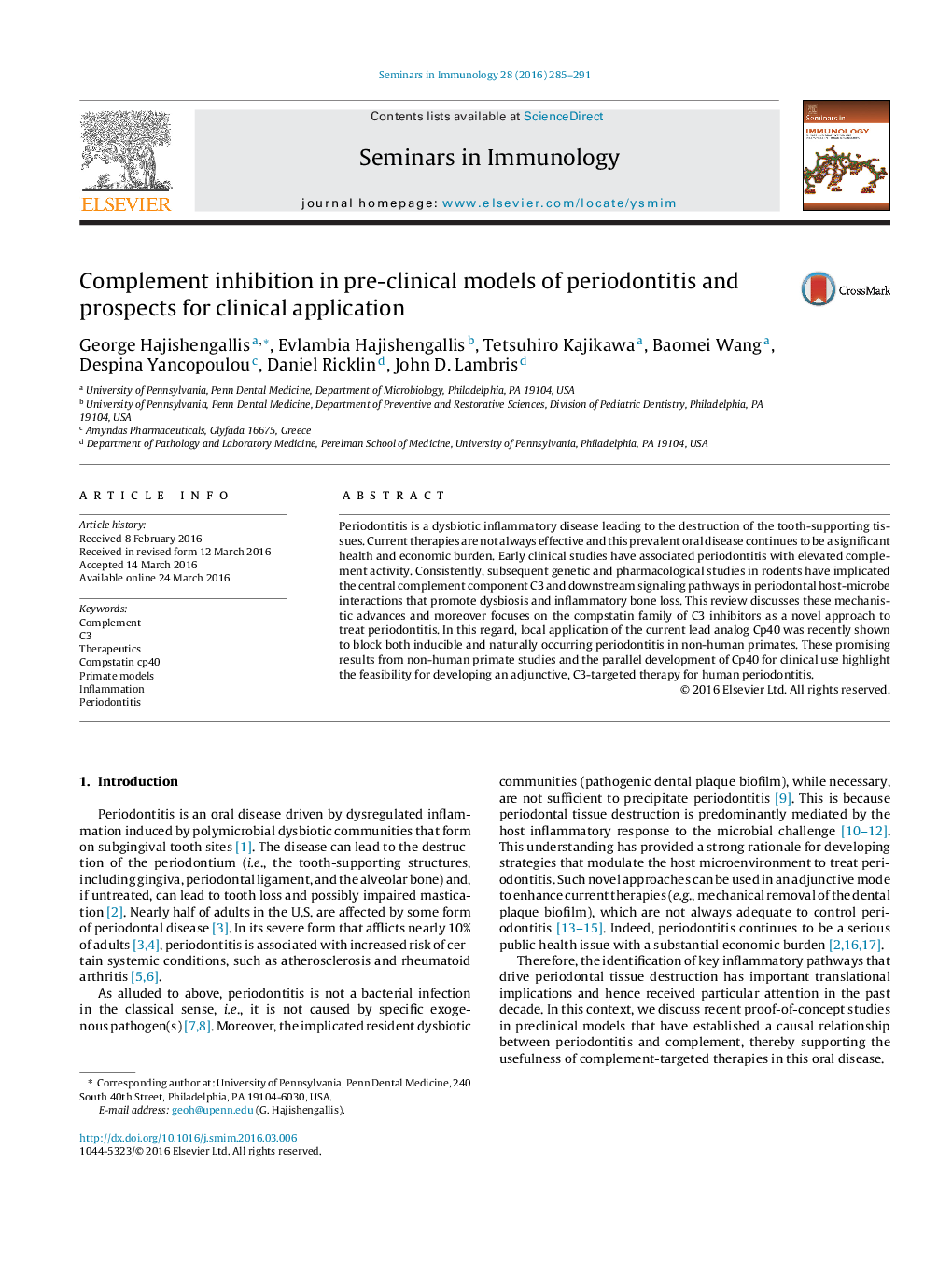| Article ID | Journal | Published Year | Pages | File Type |
|---|---|---|---|---|
| 3391285 | Seminars in Immunology | 2016 | 7 Pages |
•Complement is overactivated in periodontitis, a dysbiotic oral inflammatory disease.•C3, C3a receptor, and C5a receptor 1 (CD88) mediate periodontitis in rodents.•C3 inhibition blocks periodontitis in non-human primates.•C3 inhibitors (Cp40/AMY-101) are considered for treatment of human periodontitis.
Periodontitis is a dysbiotic inflammatory disease leading to the destruction of the tooth-supporting tissues. Current therapies are not always effective and this prevalent oral disease continues to be a significant health and economic burden. Early clinical studies have associated periodontitis with elevated complement activity. Consistently, subsequent genetic and pharmacological studies in rodents have implicated the central complement component C3 and downstream signaling pathways in periodontal host-microbe interactions that promote dysbiosis and inflammatory bone loss. This review discusses these mechanistic advances and moreover focuses on the compstatin family of C3 inhibitors as a novel approach to treat periodontitis. In this regard, local application of the current lead analog Cp40 was recently shown to block both inducible and naturally occurring periodontitis in non-human primates. These promising results from non-human primate studies and the parallel development of Cp40 for clinical use highlight the feasibility for developing an adjunctive, C3-targeted therapy for human periodontitis.
